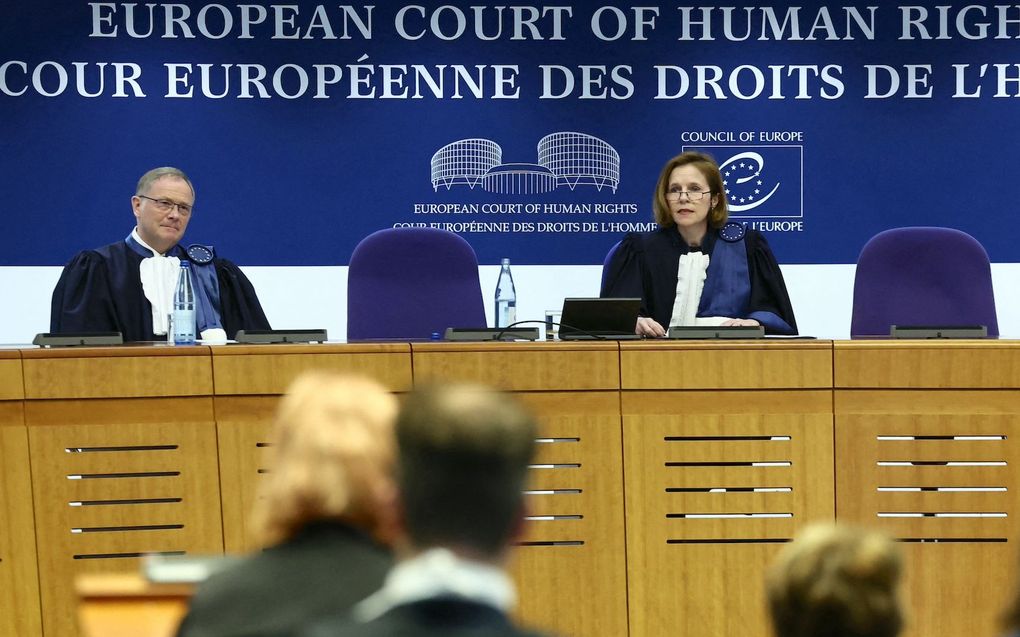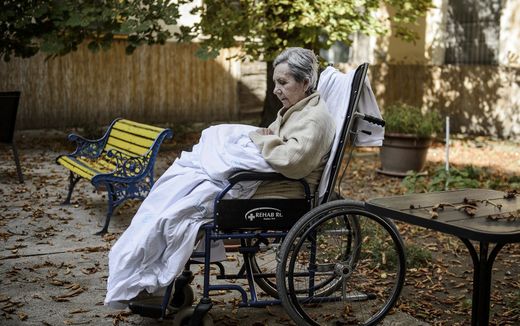Why assisted suicide will not become a human right all over Europe

The European Court in Strasbourg in sessions. Photo AFP, Frederick Florin
European Union
Assisted suicide is no human right. The European Court of Human Rights (ECtHR) in Strasbourg has dismissed an application to enforce such a right in Hungary.
This was announced by the Christian human rights organisation ADF International (Alliance for the Defence of Freedom) in Vienna, Austria.
The Hungarian citizen Daniel Karsai suffers from a progressive neurodegenerative disease. He had filed a lawsuit against his government and its ban on assisted suicide and euthanasia. In its decision last week, the court concluded that there was “no basis for concluding that Member States are advised, let alone obliged, to provide access to assisted suicide”.
ADF Chief Executive, Paul Coleman, welcomed the ruling: “We feel for Mr Karzai and pray that he gets the best possible treatment. But the outcome he sought in court would have ultimately jeopardised many lives. There is no so-called ‘right to die,’ and there must not be”, Coleman said, according to the German press service IDEA.
“Instead of abandoning our most vulnerable citizens, society should do all it can to provide the best standards of care,” said Jean-Paul Van De Walle, Legal Counsel for ADF International. He referred to the right to life in Article 2 of the European Convention on Human Rights (ECHR). According to him, it is at least difficult to legislate for safeguards to prevent abuse. “Suicide is something society rightly considers a tragedy to be prevented, and the same must apply to assisted suicide. Care, not killing, must be the goal we all strive towards,” Van De Walle explained.
The ruling in Karsai versus Hungary confirms the 2002 decision made by the ECtHR in Pretty versus UK, which involved a woman with ALS. Back then, the Court similarly ruled that the British ban on assisted suicide did not violate the European Convention and was designed to prevent abuse of the vulnerable.
Of the 46 member states of the Council of Europe (of which the ECtHR is part), only six have legislated for assisted suicide. Most countries have banned this by law. The Parliamentary Assembly of the Council of Europe has spoken out against euthanasia several times.
The European Centre for Law and Justice (ECLJ) welcomed the decision. “Surely, supporters of euthanasia will be disappointed by the judgment”, the ECLJ writes in a statement. From the perspective of earlier decisions, a different decision could have been expected.
The ECLJ was surprised by the court’s emphasis on the need for “high-quality palliative care, including access to effective pain management.” According to the judges, this is “essential to ensuring a dignified end of life.” The ECLJ writes that this is the first time the ECtHR has placed such emphasis on palliative care.
Interpretation
The head of the European legal department at ADF, Felix Böllmann, explained in this context that in 2020, the German Federal Constitutional Court (in Karlsruhe) had “interpreted the case law of the ECtHR very one-sidedly”.

In February 2020, the German Constitutional Court overturned the ban on assisted suicide introduced in 2015, stating that there is a comprehensive right to self-determined death. This includes the freedom to utilise the help of third parties.
However, according to ADF’s Böllmann, bans on euthanasia and assisted suicide are in line with the internationally guaranteed right to life.
After the court’s ruling, the German lower house, the Bundestag, debated a revision of the law regulating assisted suicide in July 2023, but no agreement was reached.
According to the euthanasia organisation “Deutsche Gesellschaft für Humanes Sterben” (DGHS, German association for humane dying), the number of assisted suicides has recently risen sharply. In 2023, the organisation arranged assisted suicide in 419 cases. This corresponds to an increase of 83 per cent compared to the previous year (2022: 229).
Related Articles








